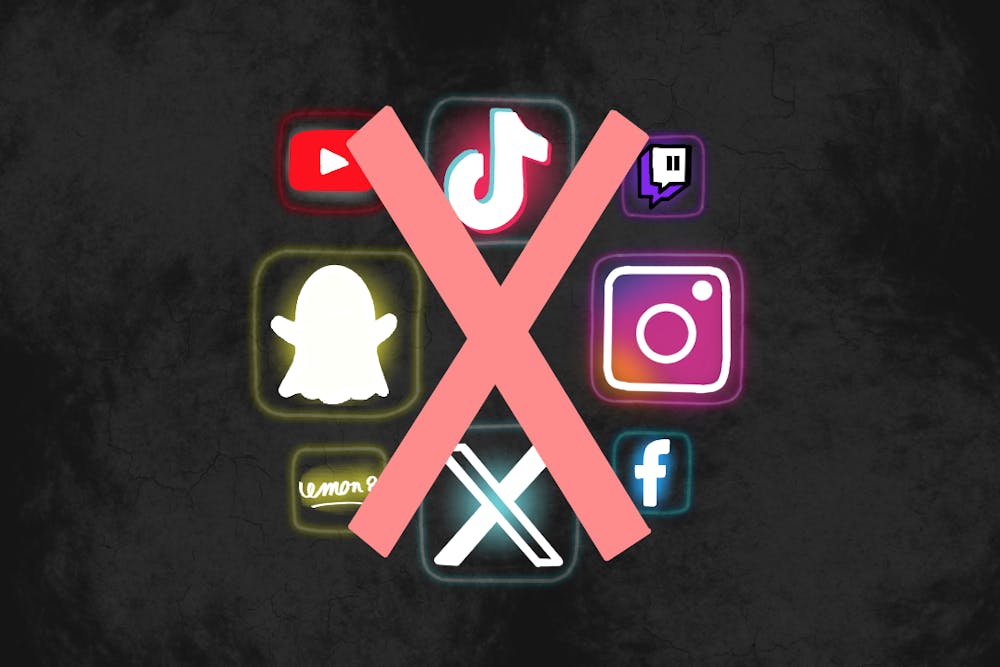Who knew you could get a long-term existential crisis from deleting Instagram?
When I was growing up, my access to the internet was limited. From afar, the tempting, delicious binary cake seemed to have no downside. Everyone else could have as much as they wanted, but I couldn't.
As a consequence, my first act of rebellion as a teenager was to get an Instagram account on my mother's phone. Using her email and phone number. Behind her back. Don't ask me any questions about the existence of this account and how I maintained it, just know my internet presence was not long-lived.
When my parents caved and I finally had my own cell phone, one of the first things I did was get social media. As a young teenager, it was my dream scenario to have unrestricted access to these apps. As an adult, I experience the overwhelming pressure to stay on social media and maintain a presence in some capacity.
When the novelty faded, I became more acutely aware of the grip Instagram had on my mind. I discovered that the funny 40 to 60 second videos on my phone trapped my attention and distracted me from consuming the media I actually enjoyed. I found myself reaching for my phone in lines at coffee shops, in the middle of meetings and classes, and even for something to play in the background as I got ready in the morning.
I've had the same Instagram and Facebook accounts for over four years now, and every day for these last four years, I have woken up and logged into these accounts.
Well, not for the last seven months.
After reading articles and watching YouTube videos of people talking about taking time off from social media, I decided to do it too. I deleted every app on my phone that could be considered social media except YouTube. When I made a new friend or needed to repost something important, I would download the app and repost it without once looking at Reels.
Eliminating this temptation admittedly caused me to slip a couple times (caving and scrolling on YouTube Shorts on an unfortunate cab ride) but for the most part, I was able to keep it going.
The side effects of this mostly included actually having to endure boredom and suffering in silence while my friends referenced ongoing trends. I missed out on a lot — I did not know when a couple broke up, when someone I did not like went on a fancy vacation or who was the annoying influencer of the week.
The most mortifying consequence of this was actually having to sit with my thoughts sometimes, and realize that I did not have very many. The resulting boredom and dissatisfaction were so extreme, they caused me to take a long look at my life.
READ MORE: Escape into the algorithm: Taking the 'doom' out of doomscrolling
I picked up old hobbies, had actual conversations with people on the phone and slowly began to care less about how things looked online. I also suddenly had infinitely more time.
When I would occasionally log back in to LinkedIn or Instagram, I would see the things other people had posted and remember the initial appeal of creating an account on the platforms. I logged into Instagram on my computer recently and saw the astonishing amount of messages I had from my Instagram friends. I missed them.
Social media has started to feel like a treat again, and I am increasingly compelled to consume and create more of the content I like. I am starting to believe I need to find a balanced way of using social media, and I think the first step is to stop scrolling on YouTube Shorts.
Edited by Andrew Dirst, Sophia Braccio and Katrina Michalak.
Reach the reporter at ktale@asu.edu and follow @KasturiTale on X.
Like The State Press on Facebook and follow @statepress on X.
Kasturi is a sophomore studying journalism. This is her third semester with The State Press. She has her own blog and has worked in creative writing.




